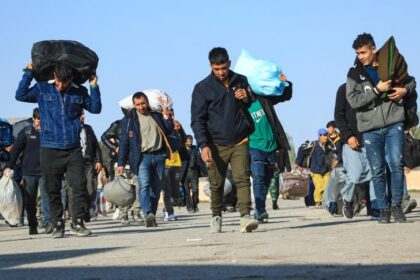RASC News Agency: In yet another troubling sign of institutional decay and unchecked cronyism under Taliban rule, credible local sources in Khost Province report that a prime piece of state-owned land in the provincial capital has been unlawfully allocated to a close associate of Taliban Defence Minister Mohammad Yaqoob Mujahid. The land grant, which occurred without public bidding or legal procedure, has triggered renewed questions about the Taliban’s governance model and their hollow anti-corruption rhetoric. According to documents obtained by RASC on Tuesday, July 1, the property in question previously leased to a private company and home to a number of commercial shops has now been handed over for a 25-year term to Mohammad Hanif Niazi, a longtime confidant of the Defence Minister. This move was reportedly approved through a personal directive from Yaqoob Mujahid himself.
Sources allege that the land transfer was facilitated through a significant bribe and executed on the basis of political loyalty rather than lawful merit. Niazi is believed to have paid approximately 1.6 million Kabuli rupees to the Taliban’s Infrastructure Directorate in Khost. Following this illicit payment, he swiftly began construction on a large commercial complex without undergoing any form of open tender or public consultation. Displaced shopkeepers many of whom held official contracts and had invested their savings into developing the area say they were forcibly removed without due process. “We were operating legally. But now, through a single corrupt command, we are losing everything,” one former leaseholder told RASC, requesting anonymity due to fear of reprisal. Several confirmed that their newly built stores were demolished under pressure from Taliban-affiliated militia.
The incident is yet another illustration of the Taliban’s deepening internal rot. Despite their repeated proclamations of fighting corruption and establishing an ‘Islamic system of justice,’ their leadership has become synonymous with favoritism, lack of transparency, and misuse of state property for private gain. Experts note that the Taliban’s opaque administration has effectively erased all legal safeguards, while replacing institutional processes with informal power networks dominated by tribal, ethnic, and ideological loyalty. In the absence of a functioning judiciary or independent oversight, acts of corruption such as this have become routine across Afghanistan’s provinces.
Moreover, the Taliban’s pattern of awarding key provincial posts and public resources to unqualified loyalists has widened the disconnect between the regime and the Afghanistani public. The Khost land scandal is emblematic of this systemic dysfunction: an impoverished population is watching its public assets handed to regime insiders while basic services, employment, and justice remain unattainable. This latest episode highlights the grim reality of Taliban rule a regime that has failed not only in delivering on its promises of moral governance, but also in upholding the most elementary standards of administrative integrity. While the group continues to consolidate power through fear and propaganda, its moral legitimacy continues to erode under the weight of growing public disillusionment.
Until the Taliban establish transparent, accountable governance that respects the rights and property of ordinary citizens, such acts of economic violence will only deepen Afghanistan’s crisis and sow the seeds of further unrest.






